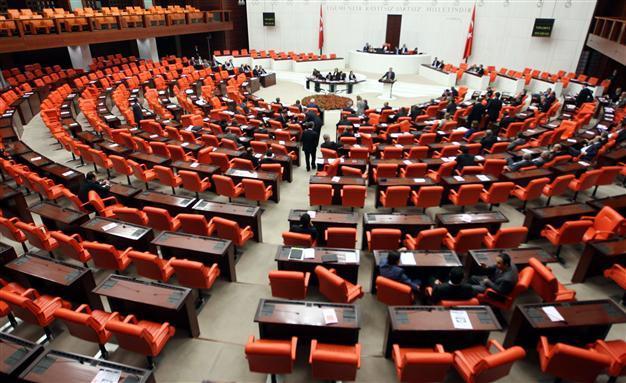Turkish Parliament to debate bill on Internet amid censorship claims
ANKARA

DAILY NEWS photo
Parliament is set to resume debates on an omnibus bill that includes an arrangement giving the Directorate of Telecommunication (TİB) president the authority to block access to certain material in the event of an appeal concerning a violation of the right to private life.
According to the same bill, a person who maintains that his or her personal rights are violated on the Internet will be able to directly appeal to a court, while a “Union of Internet Access Providers” will also be established.
The web hosting service provider will be responsible for the lifting of the content that is deemed to be in violation of the law, and will be informed of each case.
The bill is considered to be the latest in a string of government moves testing freedom of expression in the aspiring EU member state.
The debate at Parliament comes at a time when concerns over censorship have been heightened, after an action recently taken by the TİB president against a main opposition lawmaker.
The TİB president sent main opposition Republican People’s Party (CHP) deputy Umut Oran a warning and asked him to remove a parliamentary question that he had published on his website. The question was related to the phone records between Prime Minister Recep Tayyip Erdoğan, his son Bilal Erdoğan, and a number of ministers and businesspersons. In his parliamentary question, Oran had asked whether Erdoğan had instructed then-Transport Minister Binali Yıldırım to tell a group of businessmen to buy the Sabah newspaper and the ATV television station.
A parliamentary source, speaking to Agence France-Presse on condition of anonymity, said last month that the proposed legislation would allow the authorities to block keywords deemed problematic and limit access to video-sharing websites that include them.
It will also allow officials to keep a record of all activities of Internet users for two years and monitor which websites they have visited, which keywords they have searched for and their activities on social networking sites, the same source said.
The government, nonetheless, maintains that the draft bill is designed to “protect the family, children and youth from items on the Internet that encourage drug addiction, sexual abuse and suicide.”
In December, Google released data showing that Turkey topped the Internet giant’s content removal request list.
In 2010, Turkey lifted a ban on YouTube, two years after a court blocked access to the website because of videos deemed insulting to the founder of the Republic of Turkey, Mustafa Kemal Atatürk.
During the mass anti-government protests last summer, Prime Minister Recep Tayyip Erdoğan called Twitter “a menace,” denouncing protesters who turned to social media for information on the unrest.
Still, the ruling Justice and Development Party (AKP) government strongly regrets comparisons to China, which is notorious for its Internet censorship.
